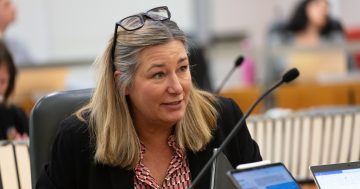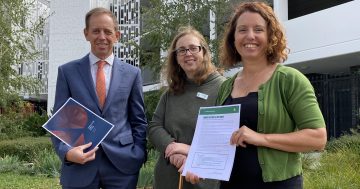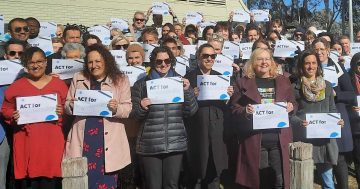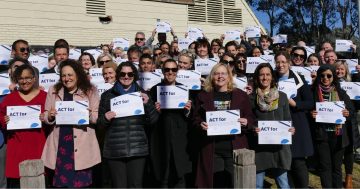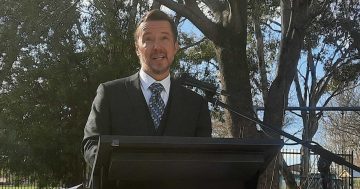
ACTCOSS CEO Devin Bowles: the market has clearly failed to deliver affordable housing. Photo: ACTCOSS.
Labor and the Canberra Liberals have ganged up to pan the ACT Greens’ public housing policy, but the $6 billion pledge to build 10,000 new homes over the next decade has got the backing of the social services sector.
The ACT Council of Social Service (ACTCOSS) called on all parties and candidates to commit to a similarly transformative change of the ACT’s housing system, saying the market had clearly failed to meet the housing needs of all Canberrans.
However, both Housing and Suburban Development Minister Yvette Berry and Opposition Leader Elizabeth Lee said the policy was unaffordable and could not be achieved.
Ms Berry said the Greens were making promises to vulnerable Canberrans that they knew could not be kept and, after being part of the government for nearly a decade, should know better.
“They should be upfront with the community about the huge hurdles to implement this policy,” she said.
“Where is the workforce going to come from? Where will the houses be located? What will be the impact on other essential government services?”
Mr Berry said ACT Labor had a proven track record to build more and better public housing.
“We are working hard every day to ensure every Canberran has the chance to build, rent or buy a home where they want to live,” she said.
Ms Elizabeth Lee said the policy would be disastrous for the ACT’s finances but also blasted Labor and the Greens for the decline in public housing on their watch.
Ms Lee said the policy was a cut-and-paste copy of the Federal Greens policy slammed by property industry experts.
“The Labor-Greens government already fails to meet its own land release targets; how would it be any different going forward?” she asked.
Ms Lee said the Greens had not explained how these 10,000 new homes would be delivered.
“If they haven’t delivered more public housing dwellings in the 12 years they’ve been in government, they won’t ever deliver them,” she said.
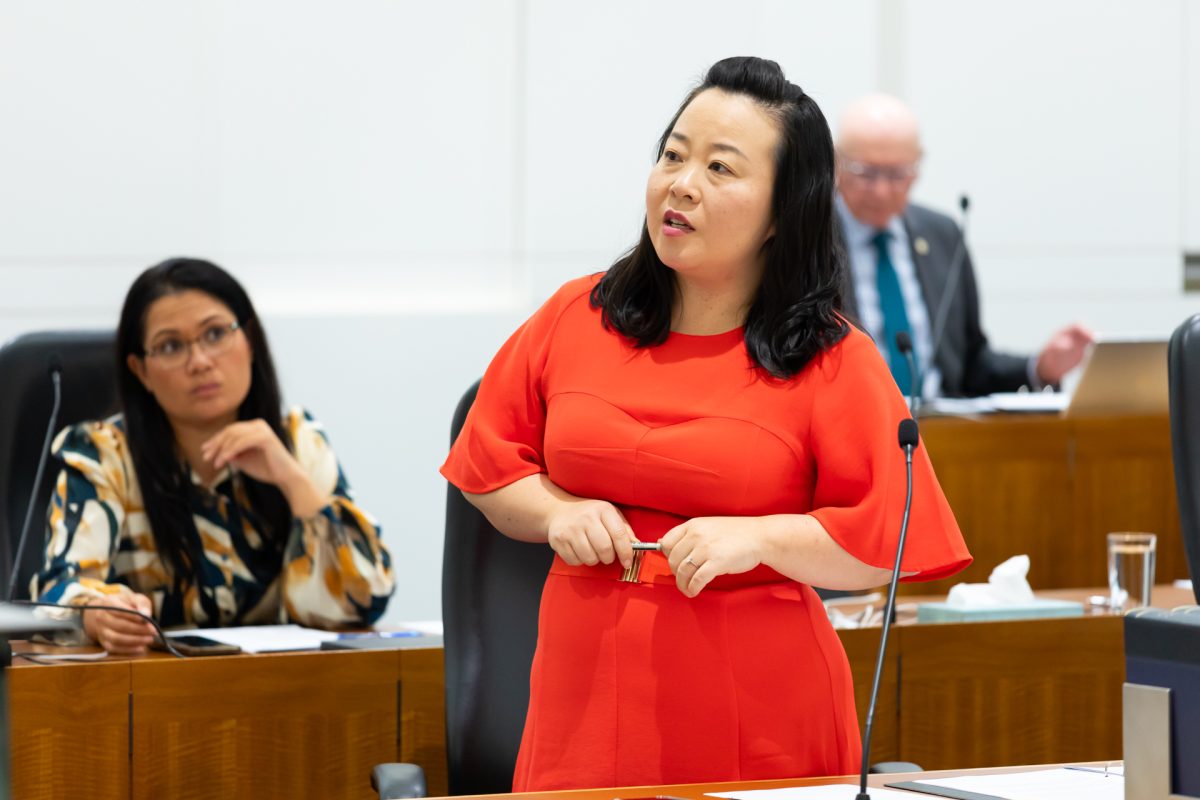
Opposition Leader Elizabeth Lee: the plan would cost too much. Photo: Michelle Kroll.
Ms Lee said the ACT now had fewer dwellings than a decade ago under the current Greens Minister in charge of homelessness and housing services, Rebecca Vassarotti.
“Let’s not forget that the Leader of the ACT Greens and former Greens Housing Minister, Shane Rattenbury, helped sell hundreds of public housing dwellings to pay for the tram,” she said.
The policy’s price tag would put the Territory’s finances into an even more diabolical state than they were now, Ms Lee said.
“So far, the ACT Greens want to spend more than $4 billion on the tram to Woden and now want to spend almost $6 billion on a policy that will do nothing to fix the mess they have created with public housing,” she said.
“Canberrans will soon be paying almost $2 million a day in interest repayments on this government’s eyewatering debt. Imagine the impact of this policy on Canberrans’ hip pockets during a cost-of-living crisis.”
But ACTCOSS Dr Devin Bowles said affordable housing had become out of reach for an increasing number of Canberrans over recent years, including many young people starting their careers and working full-time.
“The waiting list for standard priority public housing applicants is five years, a figure that has remained far too high for many years,” he said.
Mr Bowles said that the government was a landlord of choice overseas rather than of last resort.
“This approach means that the benefits of public housing are widely shared,” he said.
Mr Bowles said many Canberrans cared about someone who could directly benefit from expanded public housing.
He said 25 years ago, the ACT Government owned a much larger share of Canberra’s total housing stock.
“This plan is a sensible return to that approach,” said Dr Bowles.
“Many families and businesses know that investing in real estate makes good financial sense. The same should be true for government, especially when a lack of affordable housing jeopardises the ACT’s economic growth,” said Dr Bowles.
He said accommodation was a continuing barrier for new workers coming to Canberra and an impediment to employers retaining staff.
“Many community sector organisations report their workers leaving the ACT because they cannot afford the housing,” Dr Bowles said.
“A substantial expansion of public housing would alleviate this stress for the community sector and help businesses hire the people they need to grow.”
Dr Bowles said an extra 10,000 new public housing dwellings would fix Canberra’s homelessness problem and provide housing to workers who could not afford secure accommodation.












